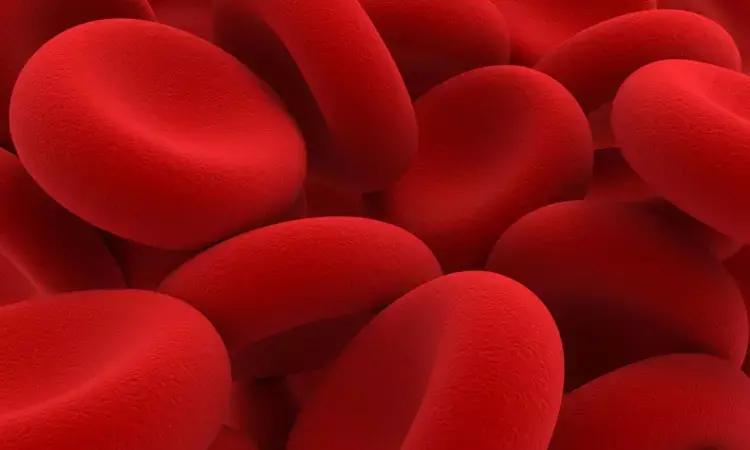High Hepcidin Levels Linked To Lower Risk Of Anemia In Late Pregnancy
- byDoctor News Daily Team
- 11 July, 2025
- 0 Comments
- 0 Mins

During pregnancy, iron deficiency (ID) and iron deficiency anemia (IDA) are prevalent concerns that impact maternal health worldwide. A new groundbreaking study revealed that hepcidin levels in the early stages of pregnancy may influence the risk of developing ID or IDA in later pregnancy. The study results were published in the journal Frontiers in Nutrition: Nutrition and Metabolism on August 15, 2023.
In the world of pregnancy-related health challenges, iron deficiency (ID) and iron deficiency anemia (IDA) are all too common, affecting expectant mothers on a global scale. Managing these conditions effectively is essential for the well-being of both mother and child. One crucial player in this ongoing medical investigation is hepcidin, a biomarker closely associated with iron status. While the importance of hepcidin is recognized, few studies have ventured into exploring the intricate link between hepcidin and the development of ID or IDA during pregnancy. Hence researchers from China conducted a prospective cohort study to investigate the association of first-trimester maternal serum hepcidin with third-trimester ID/IDA risk in a prospective cohort.
Also Read: Iron deficiency anaemia linked with higher HbA1c levels in non-diabetics
The study enrolled 353 pregnant women in Southern China who did not exhibit signs of iron deficiency or anemia during the first trimester of their pregnancies. They were diligently followed throughout their pregnancies until they reached 38 weeks of gestation. To gain a comprehensive understanding of their health, demographic and anthropometric data were collected at the beginning of the study and tracked iron-related biomarkers, including hepcidin, both at enrollment and during follow-up.
The remarkable findings from the study:
A substantial decrease in serum hepcidin levels was found as pregnancy progressed, dropping from an average of 19.39 ng/mL in the first trimester to a mere 1.32 ng/mL in the third trimester highlighting the dynamic nature of iron metabolism during pregnancy.
Nearly 46.2% developed iron deficiency (ID), and 11.4% faced the more severe condition of iron deficiency anemia (IDA).
Moderate to high levels of hepcidin in the first trimester were strongly associated with corresponding hepcidin levels in the third trimester.
The most striking revelation was the connection between elevated first-trimester hepcidin levels and a lower risk of developing IDA in late pregnancy.
After accounting for potential confounding factors, higher levels of hepcidin in the early stages of pregnancy were significantly linked to a reduced risk of IDA.
This association was not mirrored when assessing the risk of ID, indicating that hepcidin levels in early pregnancy may serve as a particularly predictive factor for anemia risk.
Thus, this groundbreaking research presented an exciting prospect for maternal health. By understanding the influence of maternal hepcidin levels in the first trimester on anemia risk in later pregnancy, new avenues for the prevention and management of iron deficiency anemia could be unlocked. However, larger-scale research endeavors are needed to validate and expand upon these promising results.
Further reading: Elevated first-trimester hepcidin level is associated with reduced risk of iron deficiency anemia in late pregnancy: a prospective cohort study. https://doi.org/10.3389/fnut.2023.1147114
Disclaimer: This website is designed for healthcare professionals and serves solely for informational purposes.
The content provided should not be interpreted as medical advice, diagnosis, treatment recommendations, prescriptions, or endorsements of specific medical practices. It is not a replacement for professional medical consultation or the expertise of a licensed healthcare provider.
Given the ever-evolving nature of medical science, we strive to keep our information accurate and up to date. However, we do not guarantee the completeness or accuracy of the content.
If you come across any inconsistencies, please reach out to us at
admin@doctornewsdaily.com.
We do not support or endorse medical opinions, treatments, or recommendations that contradict the advice of qualified healthcare professionals.
By using this website, you agree to our
Terms of Use,
Privacy Policy, and
Advertisement Policy.
For further details, please review our
Full Disclaimer.
Tags:
Recent News
Sleeping with Low Pillow Height May Increase Risk...
- 05 November, 2025
Novel Blood Test May Offer definitive diagnosis fo...
- 05 November, 2025
Esmolol Outperforms Landiolol in Reducing Mortalit...
- 05 November, 2025
Max Healthcare and Tata Institute for Genetics and...
- 05 November, 2025
Daily Newsletter
Get all the top stories from Blogs to keep track.


0 Comments
Post a comment
No comments yet. Be the first to comment!